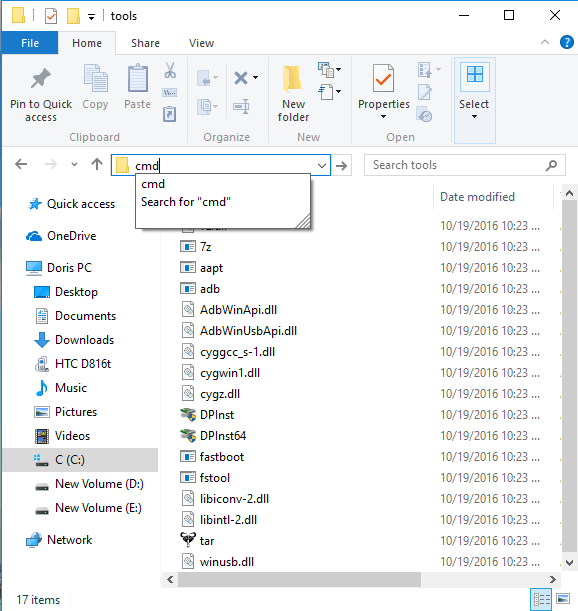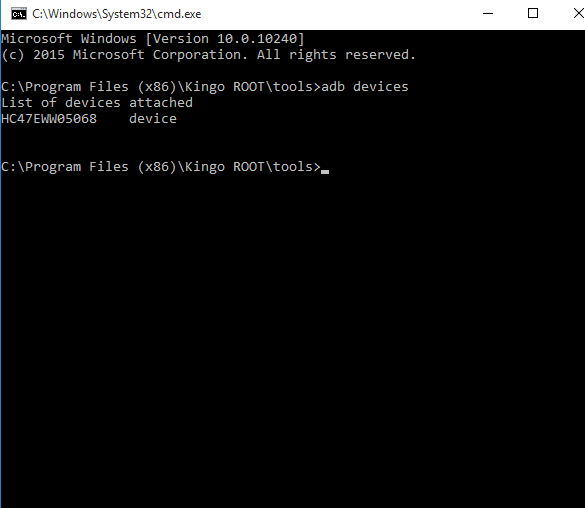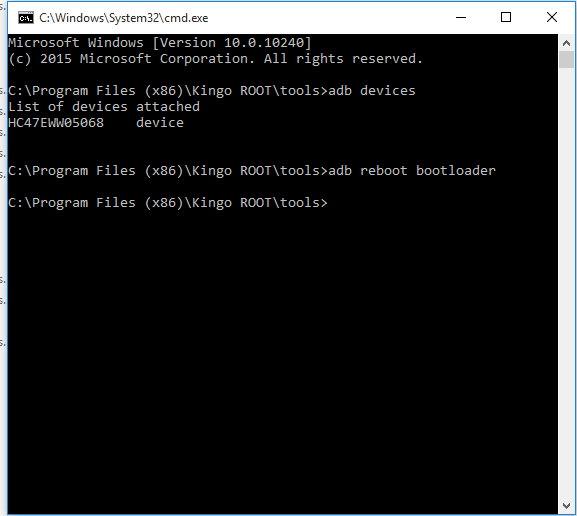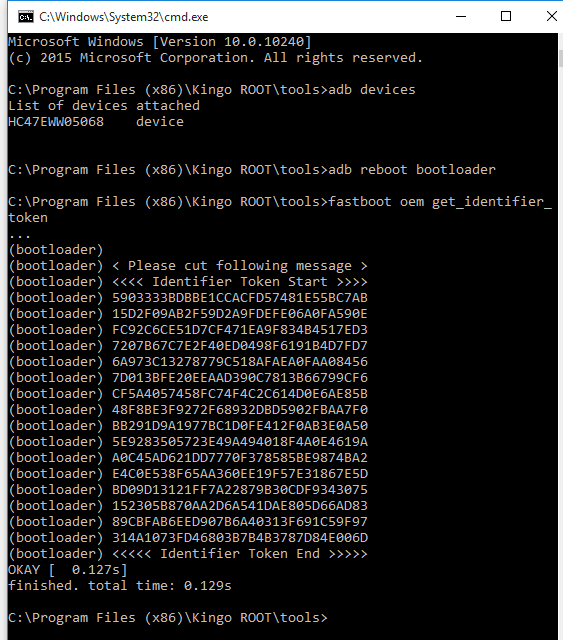How to Unlock Bootloader of Android Device With KingoRoot
Users who own an Android device can't stop from tweaking, changing, customizing, and optimizing the internal system and OS, such as install a new custom ROM, backup system data, customize Android device, root the device and so on. Before any tweaks and tricks, the first thing an user should do is to unlock the bootloader of Android device.
What Is a Bootloader?
An Android device consists of several pieces of software, which include the bootloader, radio, recovery, and system. The bootloader is the first piece of software that is run when your device turns on. It decides whether to load the recovery, or load Android and the radio. It packages the instructions to boot operating system kernal and most of them are specifically designed to run their own debugging or modification environment.
How to Unlock an Android Device?
Most Android bootloaders are locked as well as encrypted by developers in order to make sure users stick to their Android OS version. Whether you are allowed to unlock the bootloader depends on the manufacturer of the device, the model and even the carrier. Nexus phones are all allowed to be unlocked, and many phones from Motorolar and HTC as well as some other phones allow users to unlock through a similar process. However, some device can never unlock its bootloader. If an user who want to root their Android device or flash a new custom ROM, he/she had to unlock the bootloader. KingoRoot step by step guide users how to unlock the bootloader of an unlockable Android device.
Step 1: Backup important data
The unlocking process will sweep of all the data of Android. So it is important to backup any photos, videos, app data or other files on your device to a computer, a SD card or the online cloud. Backup everything you want to keep, then continue to the next step.
Step 2: Free Download KingoRoot
KingoRoot is the best and easiest root tool for free. Here KingoRoot is not used for rooting but an alternative to Android SDK and USB driver. The KingoRoot includes the Android SDK and will download the USB driver of your device automatically once connected to the PC.
- Free download the KingoRoot to the PC.
- Install the KingoRoot.
- Connect the device to the PC via an USB cable.
- Enable USB debugging.
- Click Menu button to enter into App drawer.
- Go to "Settings".
- Scroll down to the bottom and tap "About phone" or "About tablet".
- Scroll down to the bottom of the "About phone" and locate the "Build Number" field.
- Click Menu button to enter into APP Drawer.
- Tap the Build number field seven times to enable Developer Options. Tap a few times and you'll see a countdown that reads "You are now 3 steps away from being a developer."
- When you are done, you'll see the message "You are now a developer!".
- Tap the Back button and you'll see the Developer options menu under System on your Settings screen.
- Go to Settings>Developer Options>USB Debugging. Tap the USB Debugging checkbox.
- Find the icon of KingoRoot and launch it with the device connecting to the PC. After launching the KingoRoot, the PC will download the USB driver of your device automatically.
- Find the folder of KingoRoot where you install it, double click to open the folder of "Kingo ROOT". Then open the folder of "tools" under the folder of "Kingo ROOT".
- Input the letters "cmd" in the "address bar", and enter.
- The PC will pop-up a Command Prompt window, then run the command:
adb devices
Once you have connected you device to the PC, the device will show the option of "USB debugging", then just enable the USB debugging. If you fail to connect you device to PC, please refer to Device Not Connected.

If it shows a serial number, your device is recognized and you can continue with the process. Otherwise, ensure you’ve performed the above steps correctly.

Step 3: Get an Unlock Key.
There is no need for a nexus device, if you own one, you can just skip this step. If you own another unlockable device such as HTC or Motorola.
- Head to your manufacturer's bootloader unlocking page ( For example HTC and Motorola ), create an account.
- Run the command:
adb reboot bootloaderin the Command Prompt window. The device will boot into fastboot mode. Always keep the connection. - Use the Command Prompt window to retrieve your unlock key as described by your manufacturer. If you own a Motorola device run the command:
fastboot oem get_unlock_data, HTC run the command:fastboot oem get_identifier_token. - Select the token which is spit out by the Command Prompt window and copy and paste it into the applicable box of the form on your manufacturer's website without any spaces.
- Submit the form and wait for an email with a key or file that you will use in the next step.


Step 4: Unlock your bootloader of your Android device.
Here comes to perform the unlocking process. If you haven't interrupted the connection and your phone still in the fastboot mode ( If your device isn't in the fastboot, then repeat the step 2 or just hold the "Volume Down" and "Power" button for 10 seconds before releasing in order to make the device being in the fastboot mode. ):
- Run the command:
fastboot oem unlockfor most Nexus devices,fastboot flashing unlockfor Nexus 5X or 6P. - For a non-Nexus device, go to the manufacturer official website for command. For example, command
fastboot oem unlock UNIQUE_KEYfor Motorola Devices, using the unique key from email you received of Step 3. HTC devices run commandfastboot oem unlocktoken Unlock_code.bin, using the Unlock_code.bin file you received from HTC email. - Use the "Volume" keys to confirm if you are sure to unlock the bootloader.
- Reboot your device by running command
fastboot rebootor using the "Volume" buttons to reboot.
The device will show a message at boot stating that your bootloader is unlocked. With an unlocked bootloader you will be allowed to root your Android, flash a custom recovery or install a custom ROM.
KingoRoot on Windows
KingoRoot Android on Windows has the highest success rate. It supports almost any Android device and version.

KingoRoot for Android
KingoRoot for Android is the most convenient and powerful apk root tool. Root any Android device and version without connecting to PC.

Top Posts
- Successfully Get Root Access On Android 10 (Google Pixle 3 XL) With Magisk
- How to Root Android without Computer (APK ROOT without PC)
- How to Root Android with KingoRoot (PC Version)
- Best Top 5 Root Tools to Safely Gain Root Access for Your Android Devices
- How to Root Your Android 10.0 with Kingoroot root APK and PC root
- How to Root Your Android 5G with Kingoroot root APK and PC root
- How to Root Android 9.0 Pie with Kingoroot Both root APK and PC root Software
- How to Root Android 8.0/8.1 Oreo with KingoRoot APK and Root Software
- How to Root Huawei Packed with EMUI 8 and EMUI 9 or Higher with Magisk
- How to Root Samsung running Android 9.0 Pie with Magisk